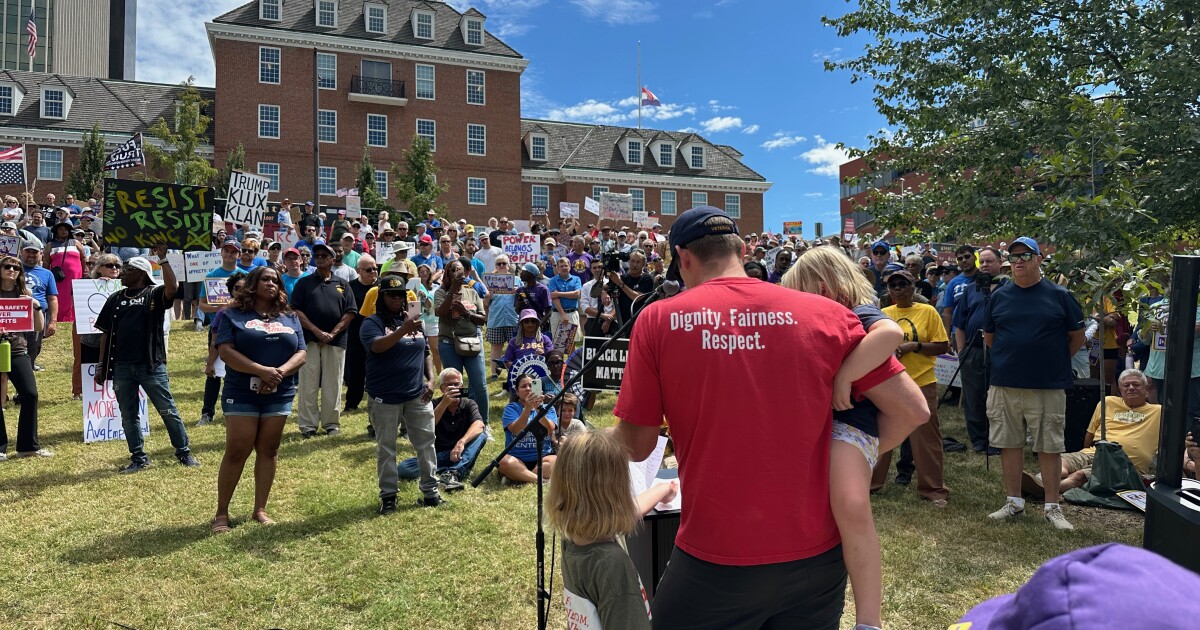At Shaw Park in Clayton, Missouri, Don Looney took a strong stance during a rally against Governor Mike Kehoe’s plan to redraw congressional districts. Speaking to a passionate crowd, he emphasized the urgency of their fight. This isn’t just a protest; it’s about their future.
Kehoe’s proposal aims to alter Democratic Congressman Emanuel Cleaver’s Kansas City district, shifting it toward a Republican advantage. He believes that Missouri should reflect “conservative, common-sense values.” Many Republicans support this, hoping it will prevent Democrats from gaining power in the upcoming elections.
However, some see this as a risky move. Many rally attendees believe that the plan reveals Republican fear about the 2026 midterm elections. Leslie Hinyard, a Webster Groves resident, noted that if Republicans have to redraw maps now, it shows they’re not confident about their standing. In contrast, states led by Democrats are also considering district changes to bolster their positions ahead of these elections.
As the crowd rallied, voices like State Senator Doug Beck spoke to the ongoing issue of representation. He pointed out the contradiction in Missouri voters repeatedly supporting progressive initiatives while electing leaders who oppose these very policies. This disconnect illustrates a pattern where lawmakers benefit from ignoring public opinion without facing consequences.
There’s a significant historical aspect to consider too. In 2018, Missouri voters repealed a “right to work” law, showing a clear preference for workers’ rights, yet many reelected lawmakers who subsequently undermined that decision. This trend raises questions about political accountability.
Some rally participants echoed similar sentiments, suggesting that redistricting might backfire on Republicans, potentially increasing Democratic representation. If districts are restructured against public sentiment, voters might react negatively in future elections.
Looking ahead, Democrats plan to challenge these changes in court, arguing that Missouri’s constitution does not allow for mid-decade redistricting. They may also propose shifting the redistricting process to a commission, where it would undergo greater public scrutiny. As conversations unfold, the push for voter engagement becomes crucial, especially in a climate filled with misinformation.
In summary, while Looney and others call for heightened engagement, the challenge is how to ensure that voters maintain clarity and understanding in an evolving political landscape. The stakes are high, not just for lawmakers but for the people they represent.
Source link


